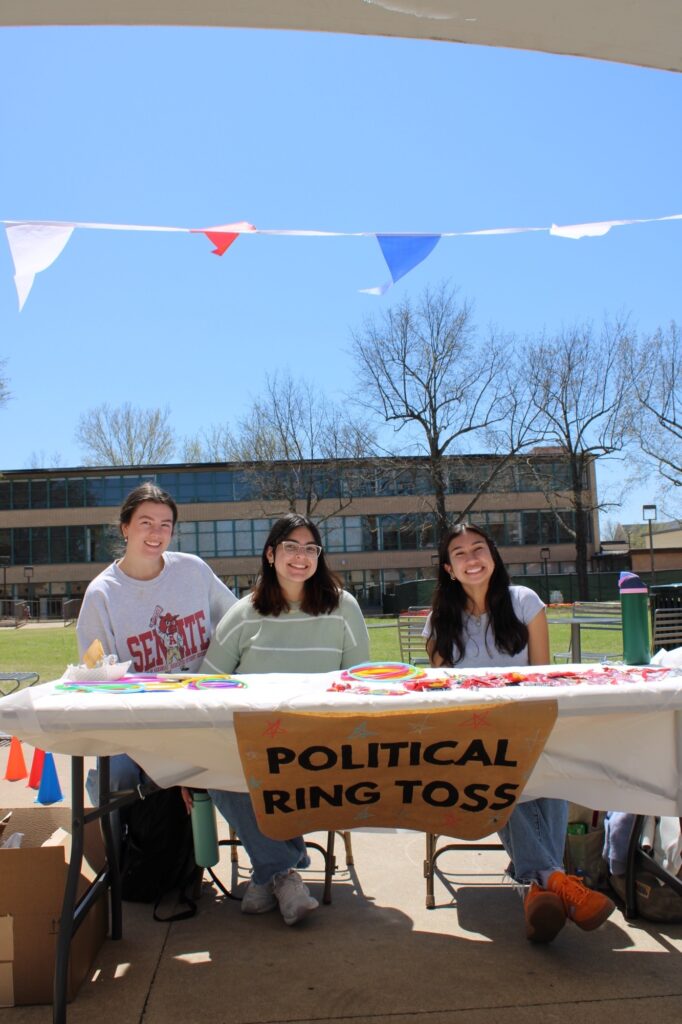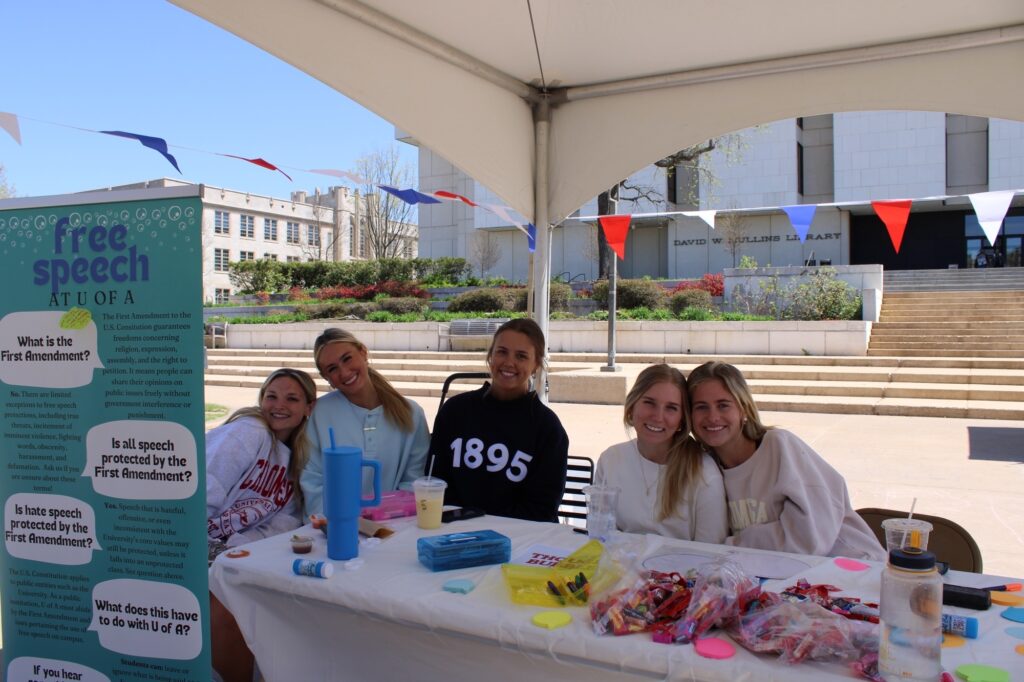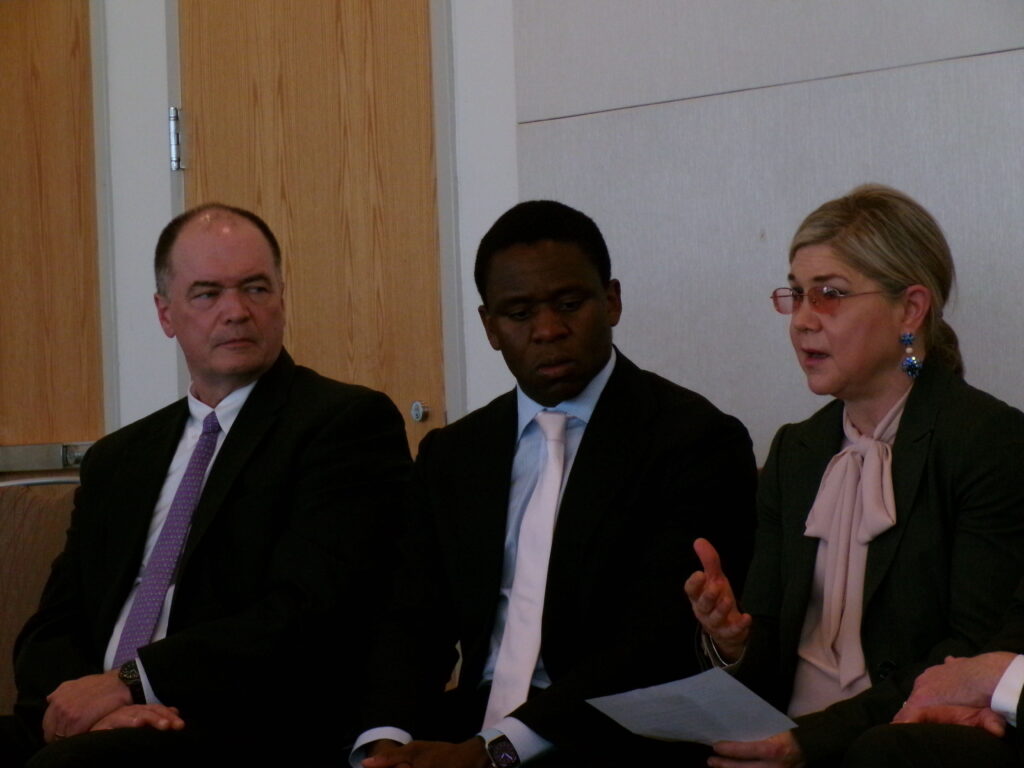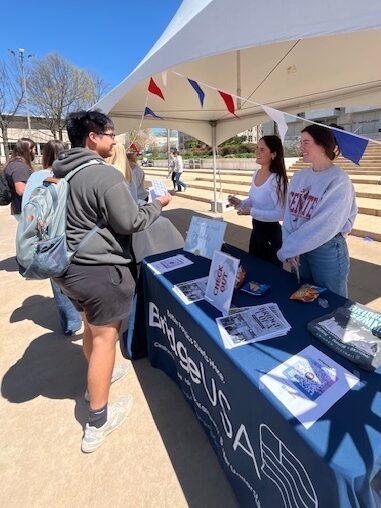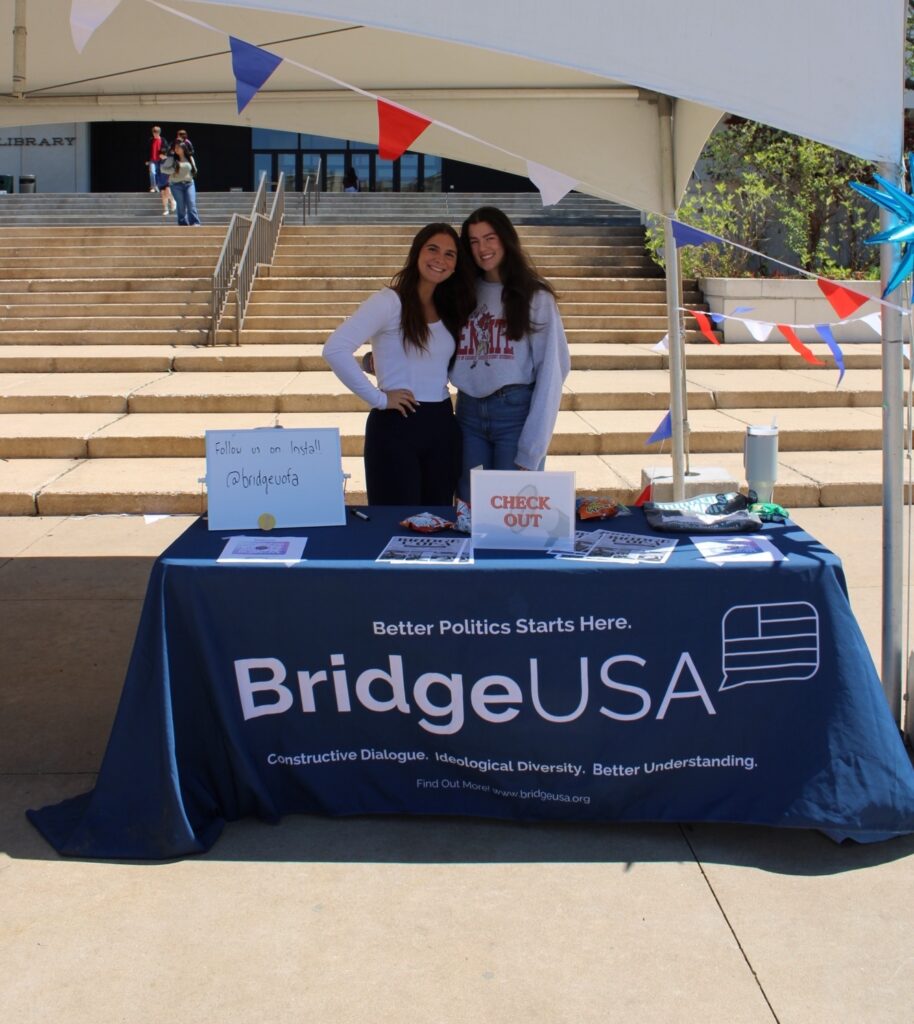Over 250+ students participated in CiviCon and the Civic Carnival to engage in political discourse and pursue leadership opportunities
On college campuses across the country, students are grappling with a complex political landscape—one that often feels overwhelming, divided, or just plain discouraging. But instead of stepping back, two BridgeUSA chapters decided to step up with large-scale, interactive civic events that reimagined what political engagement can look like for this generation.
At the University of Arkansas and North Carolina State University, student leaders organized two very different—but equally powerful—events designed to meet students where they are: curious, concerned, and eager for spaces where they can engage authentically.
Together, the Civic Carnival and CiviCon show that there’s no one-size-fits-all approach to depolarization. Instead, they highlight a key truth of BridgeUSA’s model: when we empower students with the tools and space they need to participate, they show up.
BridgeUSA Arkansas: Making Civic Engagement Fun Again
For Kate Tandy, President of the BridgeUSA chapter at the University of Arkansas, it all started with a question: How do we get students excited about civic engagement again? The answer? A colorful, welcoming outdoor event called the Civic Carnival.
With over 250 students in attendance, the Civic Carnival transformed a high-traffic area of campus into an engaging civic playground.
The setup included stations for voter registration, political trivia, and guided discussions on hot-button issues all designed to invite students of all political stripes into the conversation.
“We wanted to raise awareness not just for Bridge, but for civic engagement in general,” Kate shared. “It can be very easy, especially during such divided times, to stray away from politics and become discouraged, but that’s the opposite of what we should be doing. It’s more important than ever to stay involved. It shows students that politics can still be fun.”
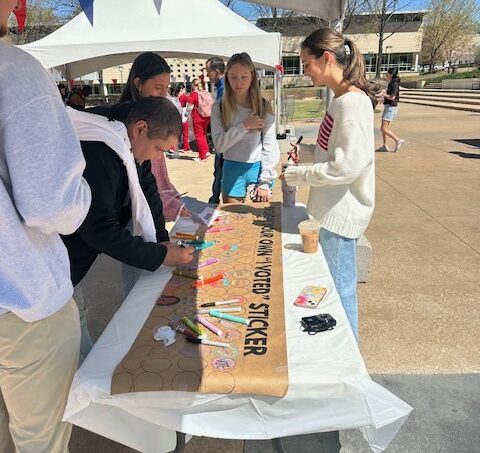
The open layout and interactive nature of the event allowed students from all backgrounds to engage at their own pace. Some came for the trivia, others stayed for the conversations—and many walked away with a deeper understanding of their rights, resources, and the importance of staying involved.
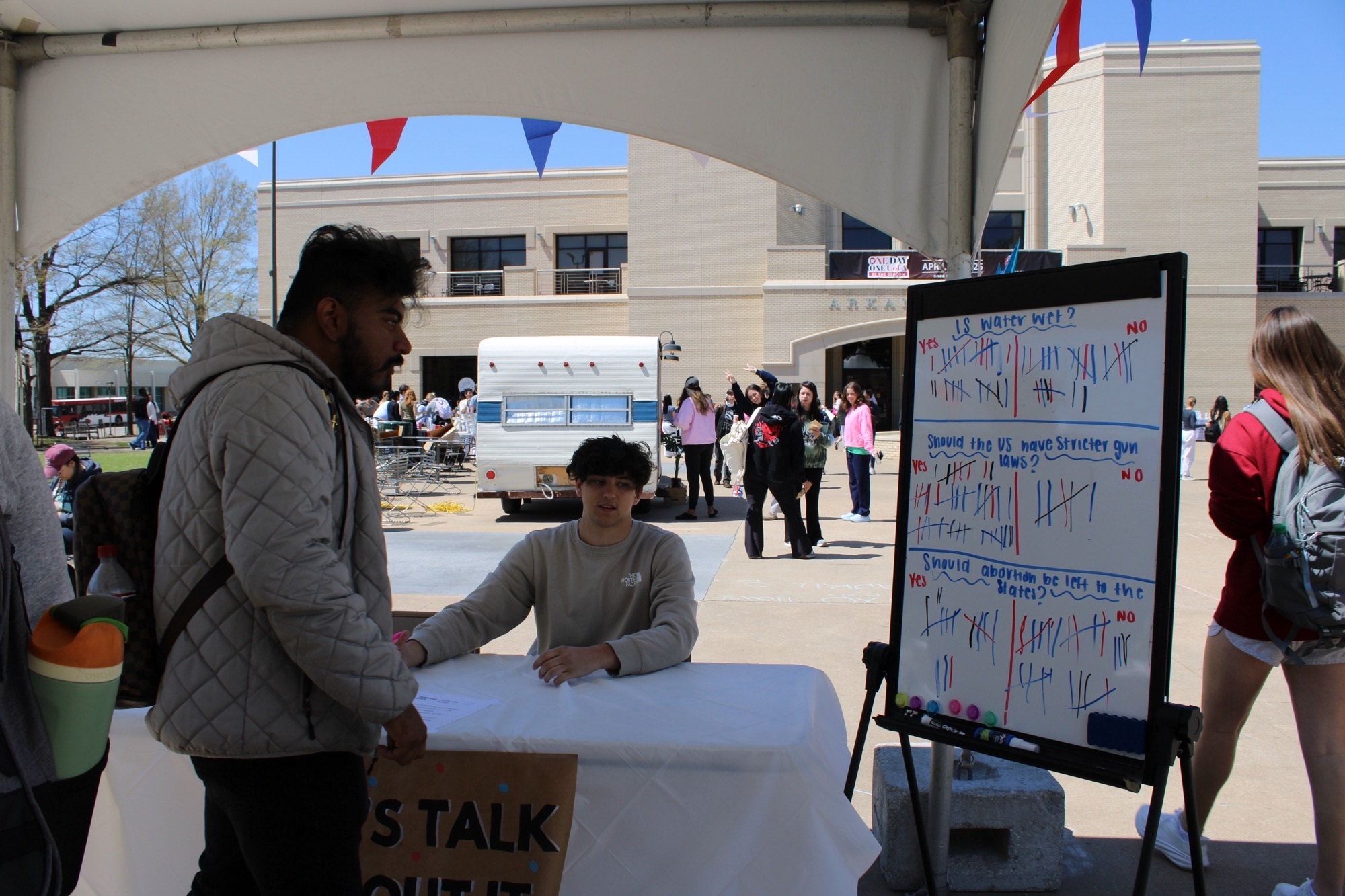
The impact was immediate. Not only did the event introduce hundreds of students to Bridge’s mission, but it also brought in new members and sparked broader conversations across campus.
“People want to be talking about these issues, but they may just feel they don’t have the ability to do so,” said Kate. “That’s where Bridge is able to step in and provide structure, guiding the conversations in a respectful way that makes everyone feel comfortable sharing.”
The impact was immediate. Not only did the event introduce hundreds of students to Bridge’s mission, but it also brought in new members and sparked broader conversations across campus.
“People want to be talking about these issues, but they may just feel they don’t have the ability to do so,” said Kate. “That’s where Bridge is able to step in and provide structure, guiding the conversations in a respectful way that makes everyone feel comfortable sharing.”
BridgeNCSU: Building a Leadership Pipeline Through Civil Discourse
While Arkansas was busy building a carnival, BridgeNCSU was focused on building something just as exciting: the next generation of civil discourse leaders.
Their CiviCon event was a one-day leadership conference hosted by chapter president Jacob Smith and the BridgeNCSU chapter team. Unlike the Carnival, CiviCon was designed specifically for student leaders across the University of North Carolina system. The goal? Equip attendees with the tools, knowledge, and motivation to bring depolarization work back to their own campuses.
“We realized we were one of only three active Bridge chapters in the state,” Jacob said. “We used this opportunity to not only bring hope for the future of politics to student leaders, but also a vision of the present–of leaders in North Carolina and beyond that are currently working to bring civility to politics.”
The event brought together a diverse lineup of guest speakers including elected officials, judges, journalists, and nonprofit leaders who shared their personal experiences navigating the polarized world of politics.
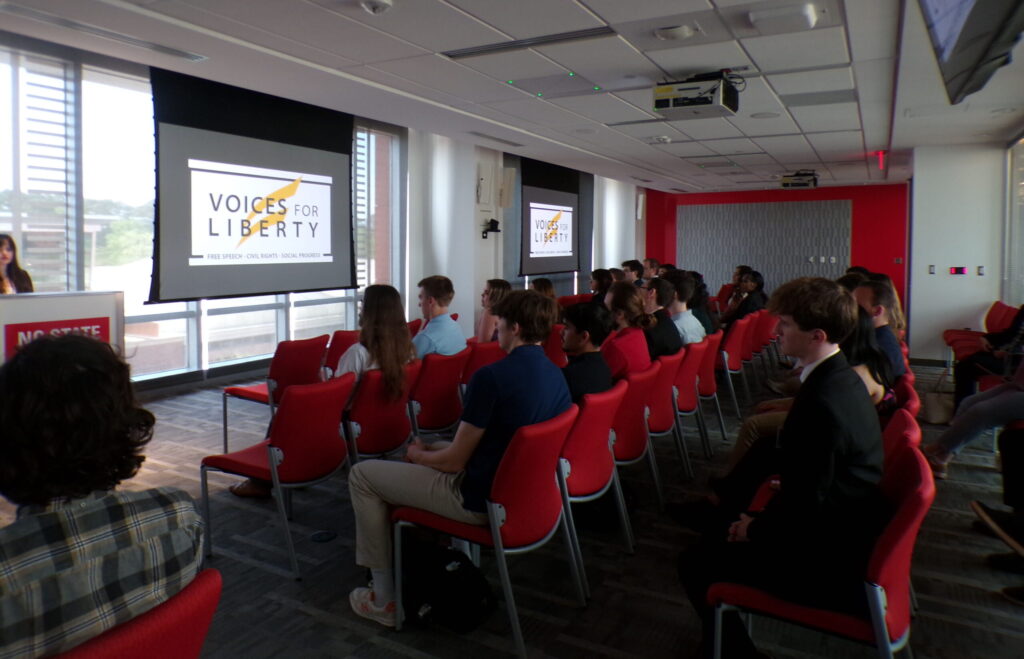
Panel discussions and breakout sessions gave students space to dive deeper into the topics and connect across campuses. The feedback was overwhelmingly positive.
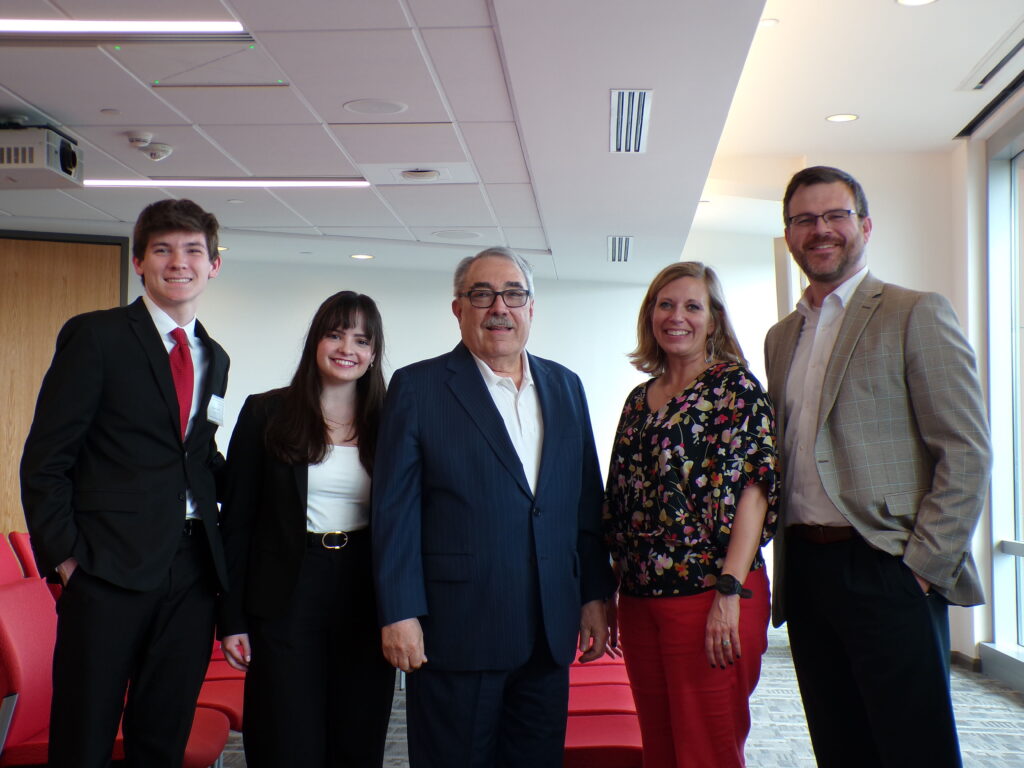
“Many expressed how refreshing it was to be part of an event where disagreement wasn’t just tolerated but welcomed as a pathway to growth,” said Jacob. “Student leaders from other campuses shared that they left feeling not only inspired, but equipped with concrete ideas to take back to their schools and a renewed belief that political engagement doesn’t have to be hostile.”
In the long term, events like CiviCon are laying the groundwork for sustainable change both within the state of North Carolina and beyond.
Two Approaches, One Mission
What makes these events so compelling is how different they are, but how aligned they remain in purpose. One was lighthearted and spontaneous, the other more formal and structured. One met students where they passed between classes, the other brought students together from across the state. Both created space for young people to engage with politics in a way that feels approachable, respectful, and real, and served as a reminder that constructive politics is still possible.
Both chapters understood that today’s students are hungry for something different. They don’t want to be talked at—they want to participate. They want tools, not talking points. Most of all, they want to know they’re not alone in caring about the future of democracy.
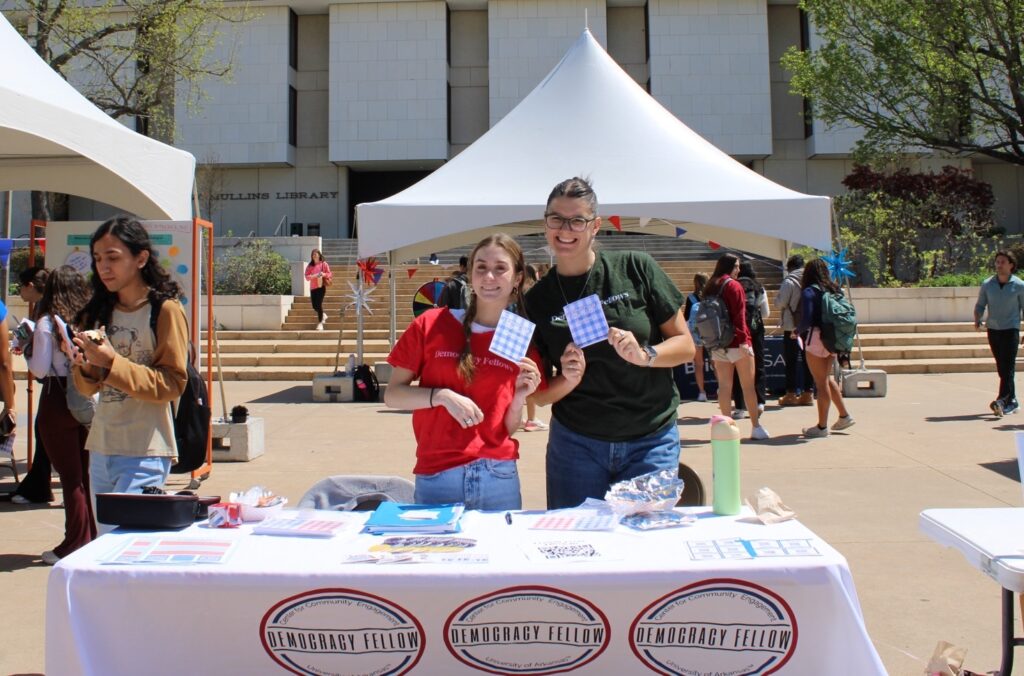
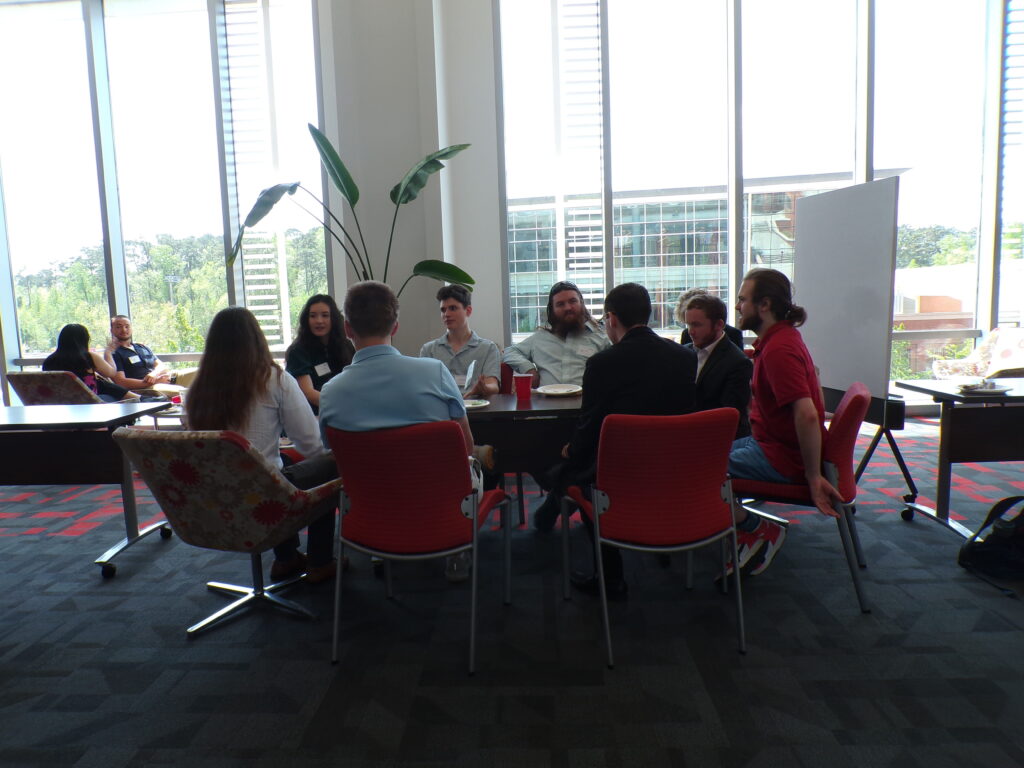
That’s what BridgeUSA does best. Whether it’s a carnival or a conference, these student-led events offer an opportunity to participate in politics differently from what we’re seeing play out nationally. This type of politics reminds us that yes, politics is complicated, but it can also be hopeful. And with the right environment, it can even be fun!
As Kate put it, “It was amazing to be able to show students what Bridge represents, and that a better political climate is possible.”
In Jacob’s words, “We’re helping to shape a generation of leaders who are more thoughtful, more collaborative and more committed to democracy–not just as a system, but as a shared responsibility.”
To get involved with BridgeUofA in Arkansas, click here. To get involved with BridgeNCSU, click here.
Not a student at either of these schools? Start a chapter today!
